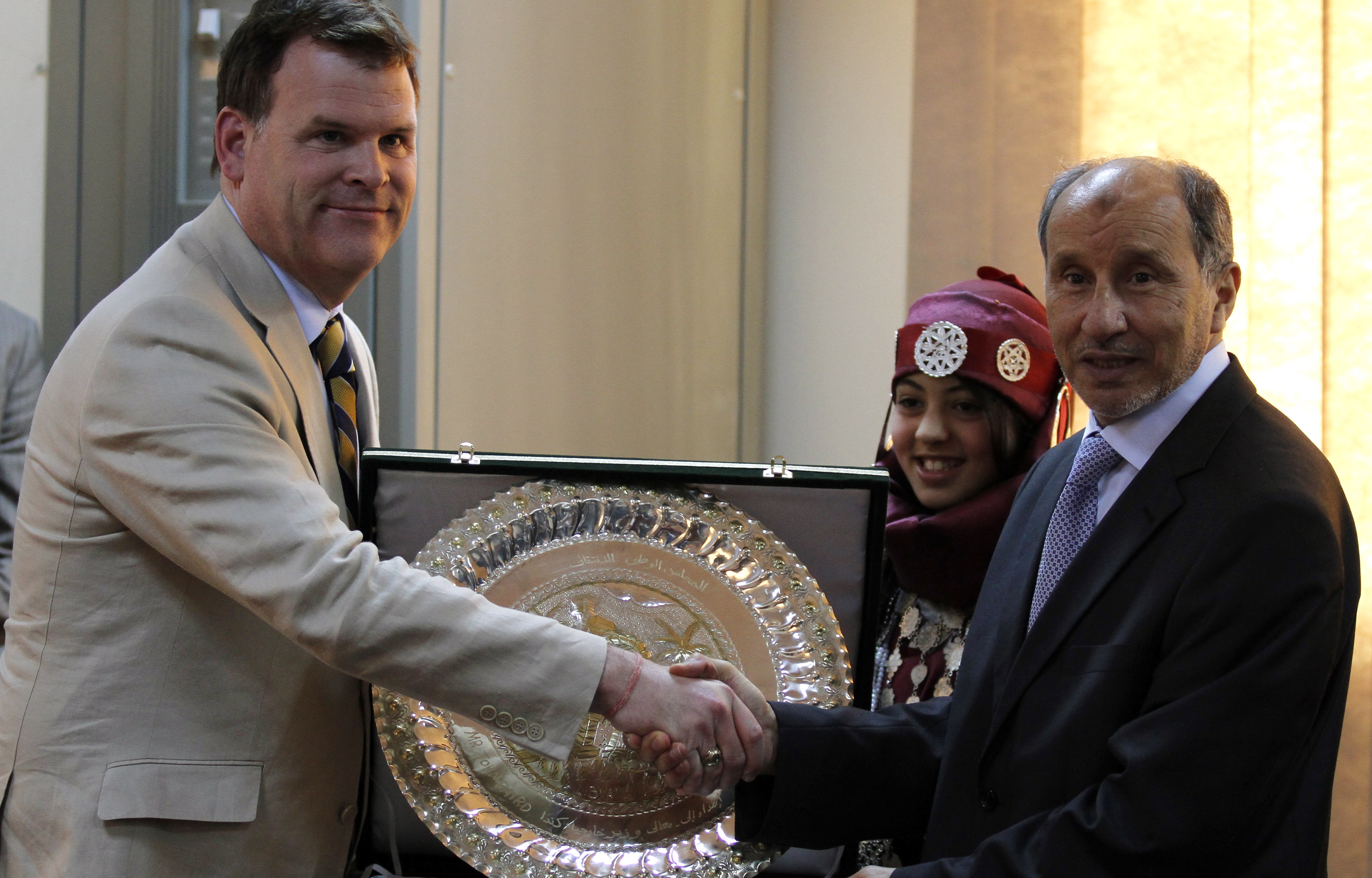 You might have been distracted by the riots in Britain, or the faux-scandal over NDP interim Leader Nycole Turmel, or the credit crisis in the U.S., or your vacation, but Canada is still dropping bombs on Libya with no end to the conflict in sight. Kelly McParland of the National Post takes a second to remind us just how committed the Conservative government is to the mission, and in particular the rebel leadership group, the Transitional National Council. “Even though the outcome of the upheaval in Libya is anything but clear, Ottawa is putting all its eggs in the rebel basket,” for example by booting out Moammar Gadhafi's envoys out of Canada, handing over their embassy and assets to the TNC, recognizing the TNC as the legitimate representative of the Libyan people, and providing financial assistance to the rebellion – and that's not including the combat support the Canadian Forces have provided. “Caution does not appear to be a major element of the Harper government’s foreign policy,” says McParland in one of the bigger understatements of the year so far.
You might have been distracted by the riots in Britain, or the faux-scandal over NDP interim Leader Nycole Turmel, or the credit crisis in the U.S., or your vacation, but Canada is still dropping bombs on Libya with no end to the conflict in sight. Kelly McParland of the National Post takes a second to remind us just how committed the Conservative government is to the mission, and in particular the rebel leadership group, the Transitional National Council. “Even though the outcome of the upheaval in Libya is anything but clear, Ottawa is putting all its eggs in the rebel basket,” for example by booting out Moammar Gadhafi's envoys out of Canada, handing over their embassy and assets to the TNC, recognizing the TNC as the legitimate representative of the Libyan people, and providing financial assistance to the rebellion – and that's not including the combat support the Canadian Forces have provided. “Caution does not appear to be a major element of the Harper government’s foreign policy,” says McParland in one of the bigger understatements of the year so far.One could also add “research” to the list of items missing from Libyan mission, given how fractious the rebel leadership has become, a point which The Independent's Patrick Cockburn elaborates upon. “In a masterpiece of mistiming, Britain recognised the rebel government on the day when some of its members were shooting their own commander-in-chief and burning his body,” notes Cockburn, referring to the assassination of military leader, General Abdel Fatah Younes, over his alleged ties to Tripoli. Mustafa Abdel Jalil, the political leader of the TNC, responded to that by firing his entire government over the ties of a handful of members to the assassins. In addition, some reports estimate there are at least 30 distinct Islamic militias in Benghazi alone. “If this is how the rebels behave today, when it is much in their interests to make a show of unity, how will they act once they are installed in power in Tripoli?” Cockburn asks. Far be it from our elected leaders to know, although those shots of John Baird shaking hands with the TNC leadership are looking more and more likely to bite him in the behind.
Foreign policy blunders notwithstanding, the lack of progress in Libya doesn't bode well for the future of NATO, writes J.L. Granatstein in the Ottawa Citizen. “In diplomacy as in baseball, it's three strikes and you're out,” he says, with the failure to solidify gains in Afghanistan and the “static” situation in Libya as strikes one and two. A third misadventure would surely further sour relations between the major NATO powers. With accusations flying for years over certain European members not carrying their weight (Germany, Spain, and Italy principal among them), and with defence cuts looming as part of austerity measures undertaken by the alliance's governments, the treaty's long-term stability is clearly up in the air. “No one yet knows where the next call for action might be – Syria? – but if NATO funks it again, then the pressure from Ottawa and, possibly, Washington may be irresistible,” says Granatstein. We're unsure of what the disintegration of NATO would mean geopolitically, but at least it might keep Canada from being so trigger-happy.
Origin
Source: the Mark
No comments:
Post a Comment